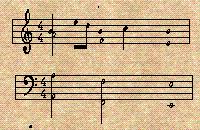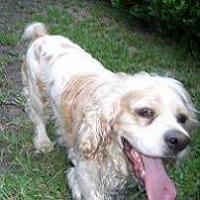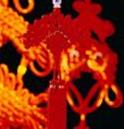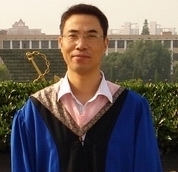| Pages in topic: < [1 2 3 4 5 6] > |
Out of the blue (Winner of Chinese to English translation contest) Thread poster: Alan Wang
|
|---|
lbone 
China
Local time: 10:58
Member (2006)
English to Chinese
+ ...
wherestip wrote:
lbone,
That's all fine and dandy. But do you see any places where you disagree with Paul's translation?
英译中结束前,我正好有两三个小时,本来想投票的,我也确实把时间花进去了,我还把原文全文找来非常仔细地通读了几遍,最后还是没评。我当时发现,细节基本都对的(Jason的译文最为典型),在文学性上并不是最好的,文学性非常好的译文,有一两篇的有些表达真叫漂亮,又有几处在细节上的理解是错的。这个错也是看了几篇译文对比一下,最后能确定的。(要我自己没有对比一个人翻译,估计不会很快弄明白,可能也会错。)
如果扔开源文不看,我会觉得那种写得漂亮,但理解有些小小错误(如果没有与源文对比,就不知道,也不会想这些是错)的译文比较好看。但看了源文,似乎又不能这样确定。想了半天,不知如何判断两种类型哪种更好,最后没投票。
当时也想到另一个问题,不同背景的人,都来参加翻译比赛,确实是一篇偏文的文章,但为什么因为它偏文就该按偏文的标准去判断它的好坏呢?似乎评估标准中并无这一条要求,如果说是文学翻译大赛,那很清楚,然而这次比赛又不是,它被冠以 ProZ 年度翻译大赛的名字,那么除了按“翻什么像什么”这种标准判断译文的好坏,是不是也可以换一种理解,这次比赛是通过一篇偏文的稿子,来考察参赛者的翻译基本功(比如对源文的理解和对目标语的表达),如果是本地化翻译,对标点符号也有严格要求。
如果是软件翻译。这位译者这样翻译,在软件处理上会有很大问题。用于软件的东西,段落是不能随便改的。这篇就在每一段间加了一个空行,而软件读文本时,可能每一段文字单独存在一个单元中,往往会根据分行符决定找哪句,这样随便多加空行的译文,可能最后引起系统运行错误,或最后用户只看到了稀疏的前一半,后一半就没了。另外,如果没有客户同意,冒号、引号也不是可以随便加的,因为软件中也可能会解析冒号、引号引发某些判断逻辑。
我只是想举例,说明既然没有指定评估标准,那某种意义上,评估者就可以自己决定标准。这时对同一篇译文,就可能出现各种好坏标准。当然我知道很多人可能觉得我用软件翻译的要求分析比较教条。
但至少有一点,中译英和英译中都是偏文的文章,但两篇获奖译文的翻译特点明显不同。英译中获奖译文在细节上基本都翻译对了,至于文学性,我个人认为并不是最好的。中译英这篇,译文的大量细节与源文并不一致,大家仔细看看就会注意,相对于源文,译文中大量添加、删除、调整了一些内容。如果中译英获奖译文是好的,那我觉得英译中获奖的应该是其他译文,如果英译中这篇是众望所归,我觉得按照相同的标准,中译英这篇大量存在“信”的问题。
当然,我不想说它不好,既然没有标准,那我的判断标准也不算数,我不能说它不好。
除了按照其它标准(某种标准上的“信”),它有显而易见的缺点外,它自己有显而易见的优点(表达很漂亮),但实际判断是否该获奖的标准应该是如何,比赛并未指定,这也是我没投票的原因。
至于你说如何译才算好,我觉得需要有标准,有了标准,就容易判断了。如果对忠实度有更高的要求(只是如果,并不是说越高越好,这要看谁来要求了),那少掉的要补上,多出来的要删掉。
打个比方,两拔人因为一篇文章起了争议,在打官方,法庭要求把出问题的这篇文章原原本本,按它的表达方式翻译成英文,那肯定就不该这么翻译了。基本每一句不能这么翻译。
比如:
我们常常听人说,自己醒悟了,明白了,觉悟了之类的。
We often hear people use such expressions as: "I've woken up to reality", "It all becomes clear" or: "I've seen the light."
源文并无“expressions”这个词,译文也不应该出现它。总之,中英文在表达上有些区别。有时这些区别会致命。按译文的写法,好象是有三种具体的表达,但原文是否会指别人只是想说几种意思,而不是几种表达呢?实际上原文也没有具体指明是在说几种意思,它就是现在这样写的,模糊表达除了只是无意中形成,有时也是出于某种考虑,特意确定的表达方式,但译文的把原文的模糊表达方式又改成了一种不模糊的表达方式。这就是改变了。
自己醒悟了 -> "I've woken up to reality" (并非准确翻译,原文未提到reality)
明白了 -> "It all becomes clear" (并非准确翻译,原文并未提到all)
觉悟了 -> "I've seen the light" (并非准确翻译,light这个词容易引起各种各样的歧义)
所以如果是法庭要求的译文,这篇译文问题很大。
总之,获奖译文的最大问题,就是在大量细节上与原文不一致,大多数句子都如此。在很多标准下,都是很大的问题。
中译英和英译中最大的共同点,就是获得了最多人的认同。但这种认同是在没有指定标准前提下的认同,而且这里评估者的选定,除了他们都付钱给ProZ成为会员外,似乎也没有其他标准。
其实我上一篇本来是想回关于“天才”的话题的。我觉得没那么多天才。我觉得人是有天份上的差别的(比如有些人天生智力就有问题,不是骂人,咱这儿没有这样的人,就是那种大家都知道的天生智障,但另一些人比较正常),但正常人的实际差别也许也没有后来天表现的那样大,很多“天才”都和早年的成长环境有关,很多早年显示出的天才,也是与家庭环境中的暗示指引分不开的。如果这位译者生在山西挖煤工人家庭,而不是周围常有不同人说不同欧洲语言的欧洲,相信他也不容易形成现在这样的翻译能力。
不过我后来写译文写着写着就写偏了。
其实我也写了,我并不认为获奖译文能显示出这位译者是翻译天才。译文并未显示对源文的理解有什么特别优秀之处,他只是目标语表达比较好,显示出的能力不算翻译能力,只是母语写作能力。
[Edited at 2008-12-31 17:56 GMT]
| | | |
wherestip 
United States
Local time: 21:58
Chinese to English
+ ...
| communication | Dec 31, 2008 |
lbone wrote:
除了按照其它标准(某种标准上的“信”),它有显而易见的缺点外,它自己有显而易见的优点(表达很漂亮),但实际判断是否该获奖的标准应该是如何,比赛并未指定,这也是我没投票的原因。
至于你说如何译才算好,我觉得需要有标准,有了标准,就容易判断多了。如果对忠实度有更高的要求(只是如果,并不是说越高越好,这要看谁来要求了),那少掉的要补上,多出来的要删掉。
打个比方,两拔人因为一篇文章起了争议,在打官方,法庭要求把出问题的这篇文章原原本本,按它的表达方式翻译成英文,那肯定就不该这么翻译了。基本每一句不能这么翻译。
比如:
我们常常听人说,自己醒悟了,明白了,觉悟了之类的。
We often hear people use such expressions as: "I've woken up to reality", "It all becomes clear" or: "I've seen the light."
源文并无“expressions”这个词,译文也不应该出现它。总之,中英文在表达上有些区别。有时这些区别会致命。按译文的写法,好象是有三种具体的表达,但原文是否会指别人只是想说几种意思,而不是几种表达呢?实际直原文也没有具体指明是在说几种意思,它就是现在这样写的,模糊表达有时也是出现某种考虑,特意确定的表达方式,但译文的把原文的模糊表达方式又改成了一种不模糊的表达方式。这就是改变了。
自己醒悟了 -> "I've woken up to reality" (并非准确翻译,原文未提到reality)
明白了 -> "It all becomes clear" (并非准确翻译,原文并未提到all)
觉悟了 -> "I've seen the light" (并非准确翻译,light这个词容易引起各种各样的歧义)
所以如果是法庭要求的译文,这篇译文问题很大。
总之,获奖译文的最大问题,就是在大量细节上与原文不一致,大多数句子都如此。在很多标准下,都是很大的问题。
lbone,
I think it is mostly a translation philosophy issue you are talking about. IMO a strict verbatim translation in most circumstances is undesirable, regardless of the nature of the source text.
I think most people would agree that conveying the meaning accurately is of the utmost importance in translation. After all, the main objective of translation is to facilitate communication between two different languages and cultures. To that end, I for one truly don't see the merit of pursuing a word-for-word correspondence just for its own sake.
BTW, perhaps the weird and awkward Chinese that is so prevalent these days might be a direct result of word-for-word translations.
[Edited at 2009-01-01 01:42 GMT]
| | | |
ysun 
United States
Local time: 21:58
English to Chinese
+ ...
| Congratulations to Paul Hirsh! | Dec 31, 2008 |
dumont wrote: It was perhaps not his conscious fault to look more French than English. Besides, I looked at his service portfolios last night and decided that he was French. Now I carefully consider it would be more appropriate to call him a pseudo-Chinese French Catalanian of English origin. 
dumont,
What did you mean by calling him "a pseudo-Chinese French Catalanian of English origin"?
What does it matter with the winning award whether Paul Hirsh is a French or British?
http://www.proz.com/profile/108604
[Edited at 2009-01-01 07:41 GMT]
| | | |
wherestip 
United States
Local time: 21:58
Chinese to English
+ ...
| basic etiquette | Dec 31, 2008 |
ysun wrote:
What did you mean by calling him "a pseudo-Chinese French Catalanian of English origin"?
What does it matter with the winning award whether Paul Hirsh is a French or British?
I agree, Yueyin.
It is not cool.
| | |
|
|
|
Alan Wang 
China
Local time: 10:58
English to Chinese
+ ...
TOPIC STARTER | We are what we think in? No, perhaps not | Jan 1, 2009 |
Hi , ysun,
pseudo-chinese was only meant as a cool word,
If it touches the nerves of anyone, my apologies.
By the way, I might call myself pseudo-English or pseudo-American since I am sometimes thinking and writing in their languages, if that’s any consolation to those who might feel offended.
ysun wrote: What did you mean by calling him "a pseudo-Chinese French Catalanian of English origin"? What does it matter with the winning award whether Paul Hirsh is a French or British? http://www.proz.com/profile/108604
| | | |
ysun 
United States
Local time: 21:58
English to Chinese
+ ...
| It’s not a cool word | Jan 1, 2009 |
Dumont,
I don’t care if you call yourself pseudo-English or pseudo-American or call the English you wrote pseudo-English, but I don’t think it is appropriate if you call Paul Hirsh "a pseudo-Chinese French Catalanian of English origin". We need to know some basic etiquette as Steve suggested.
dumont wrote: We are what we think in? No, perhaps not Hi , ysun, pseudo-chinese was only meant as a cool word, If it touches the nerves of anyone, my apologies. By the way, I might call myself pseudo-English or pseudo-American since I am sometimes thinking and writing in their languages, if that’s any consolation to those who might feel offended. ysun wrote: What did you mean by calling him "a pseudo-Chinese French Catalanian of English origin"? What does it matter with the winning award whether Paul Hirsh is a French or British? http://www.proz.com/profile/108604
[Edited at 2009-01-01 03:36 GMT]
| | | |
redred 
China
Local time: 10:58
English to Chinese
+ ...
对这个字pseudo比较蒙,从诸贴获知一二,概括如下:对自己说“假洋鬼子”是自谦语,但套用在别人身上是非敬语。为免歧义,建议在论坛撰文使用中文,尤其当英文表达得不怎么样好时,甚而英文写得好别人看得不真切,也会影响交流。
[Edited at 2009-01-01 03:42 GMT]
| | | |
redred 
China
Local time: 10:58
English to Chinese
+ ...
lbone wrote:
我己醒悟自了 -> "I've woken up to reality" (并非准确翻译,原文未提到reality)
明白了 -> "It all becomes clear" (并非准确翻译,原文并未提到all)
觉悟了 -> "I've seen the light" (并非准确翻译,light这个词容易引起各种各样的歧义)
获胜者采用意译。
反译:I've woken up to reality,“我回到现实中”约等于“自己醒悟了”;It all becomes clear,“清楚明白”约等于“明白了”。I've seen the light,“洞悉真相/看到曙光”约等于“觉悟了”。
文学翻译,大意差不多,并赋予一些遣词造句方面的美感,就行了。
[Edited at 2009-01-01 07:26 GMT]
| | |
|
|
|
Zhoudan 
Local time: 10:58
English to Chinese
+ ...
| 翻译是翻译意思,不是翻译字眼 | Jan 1, 2009 |
法院的翻译,更需要把意思翻译到位,而不是斤斤计较字眼。无论是文学翻译还是科技翻译、法律翻译,都必须翻译意思,而不是字眼。你有点太抠字眼了。
lbone wrote:
比如:
我们常常听人说,自己醒悟了,明白了,觉悟了之类的。
We often hear people use such expressions as: "I've woken up to reality", "It all becomes clear" or: "I've seen the light."
源文并无“expressions”这个词,译文也不应该出现它。总之,中英文在表达上有些区别。有时这些区别会致命。按译文的写法,好象是有三种具体的表达,但原文是否会指别人只是想说几种意思,而不是几种表达呢?实际上原文也没有具体指明是在说几种意思,它就是现在这样写的,模糊表达除了只是无意中形成,有时也是出于某种考虑,特意确定的表达方式,但译文的把原文的模糊表达方式又改成了一种不模糊的表达方式。这就是改变了。
自己醒悟了 -> "I've woken up to reality" (并非准确翻译,原文未提到reality)
明白了 -> "It all becomes clear" (并非准确翻译,原文并未提到all)
觉悟了 -> "I've seen the light" (并非准确翻译,light这个词容易引起各种各样的歧义)
[Edited at 2009-01-01 09:02 GMT]
| | | |
Sherwin Zhou 
China
Local time: 10:58
English to Chinese
+ ...
redred wrote: lbone wrote:
我己醒悟自了 -> "I've woken up to reality" (并非准确翻译,原文未提到reality)
明白了 -> "It all becomes clear" (并非准确翻译,原文并未提到all)
觉悟了 -> "I've seen the light" (并非准确翻译,light这个词容易引起各种各样的歧义)
别人采用意译。 反译:I've woken up to reality,“我回到现实中”约等于“自己醒悟了”;It all becomes clear,“清楚明白”约等于“明白了”。I've seen the light,“洞悉真相/看到曙光”约等于“觉悟了”。 文学翻译,大意差不多,并赋予一些遣词造句方面的美感,就行了。 [Edited at 2009-01-01 04:58 GMT]
完全同意redred的观点,翻译并非仅限于一一对应,并非说原文未提到什么字,译文就不能出现什么字;况且偏文学的翻译与技术类的翻译并不能采用统一的评价标准。
[Edited at 2009-01-01 05:19 GMT]
| | | |
Zhoudan 
Local time: 10:58
English to Chinese
+ ...
wherestip wrote: I'm sorry to say that I don't agree with anything you commented on. 
| | | |
Alan Wang 
China
Local time: 10:58
English to Chinese
+ ...
TOPIC STARTER
I can't understand why you are persistently taking it the wrong way.
I don't think you have something against being a Chinese.
Being a Chinese is not something to be ashamed. Then why calling him a pseudo-Chinese is being regarded as impolite? In my opinion, this combination of words is only derogative or impolite in its entirety when the later part of it, in this case, Chinese, is unmistakably derogative (假洋鬼子).
But being a Chinese if not somethin... See more I can't understand why you are persistently taking it the wrong way.
I don't think you have something against being a Chinese.
Being a Chinese is not something to be ashamed. Then why calling him a pseudo-Chinese is being regarded as impolite? In my opinion, this combination of words is only derogative or impolite in its entirety when the later part of it, in this case, Chinese, is unmistakably derogative (假洋鬼子).
But being a Chinese if not something to be proud, it is at least ok. There is a word “vegetarian” which is also a neutral if not commendatory term; I don’t think a native speaker would have objected to being called a pseudo-vegetarian if he really eats a little fish in the year and not all vegetables.
ysun wrote:
Dumont,
I don’t care if you call yourself pseudo-English or pseudo-American or call the English you wrote pseudo-English, but I don’t think it is appropriate if you call Paul Hirsh "a pseudo-Chinese French Catalanian of English origin". We need to know some basic etiquette as Steve suggested.
▲ Collapse
| | |
|
|
|
lbone 
China
Local time: 10:58
Member (2006)
English to Chinese
+ ...
Sherwin Zhou wrote:
完全同意redred的观点,翻译并非仅限于一一对应,并非说原文未提到什么字,译文就不能出现什么字;况且偏文学的翻译与技术类的翻译并不能采用统一的评价标准。
这次翻译并无质量标准,由大家自行判定。所以我说不好判断。既然叫年度翻译大赛,占用了这个公共的名称,并不叫年度文学翻译大赛,所以它应该是面向各领域译员的翻译比赛,基于相对公平统一的标准考察各领域译员的翻译能力,并没有什么理由认为源文本身是偏文学类的,就应该按文学翻译的标准进行评估。
打个比方,中学年年评比学习标兵,结果年年的评估标准都是考写一篇散文,这合理吗?
我前面也列了,有大量领域要求准确翻译,技术只是其中一个。
即使偏文,法律、商务、政治、经济都是偏文,领导人讲话,翻译错一个字,都可能后果很严重。别人本来说“我明白了”,如果翻译成了“我完全明白了”,封死了自己以后的一切退路,可能后果就很严重。很多小说中都有字字计较的场景,某处含含糊糊的埋下一个大包袱,看完很多章节,以为是某意思,最后不是,回头一看,恍然大悟,原来他/她当初说的某一句话并不是一眼看过去的那么简单,可能字字有玄妙。这就是纯文学了,也一样有字字计较的时候。
即使最后确实是这意思,可能源文作者开章时只是简单挑一下,并不想一开始就表明呢?结果翻译后行文风格就改了。当然,文无第一,翻译也一样。但至少不能说因为是偏文或文学翻译,就应该不需要关注细节是否与原文一样。在英译中比赛关于39分钟和近40分钟这个话题上,大家都讨论过了。不准确并非文学翻译必有的权利。
最近在看《庆余年》,很早有一句话,说了好多遍,说“宫中有一位大宗师”,然后花了不少时间去渲染宫中的太监首领洪公公的武学修为,包括九品和大宗师修为的人碰到他都比较小心。一百章后,才发现这是一个大包袱,原来大宗师是皇帝自己,皇帝是一个隐藏大boss。
[Edited at 2009-01-01 12:08 GMT]
| | | |
ysun 
United States
Local time: 21:58
English to Chinese
+ ...
redred wrote:
对这个字pseudo比较蒙,从诸贴获知一二,概括如下:对自己说“假洋鬼子”是自谦语,但套用在别人身上是非敬语。为免歧义,建议在论坛撰文使用中文,尤其当英文表达得不怎么样好时,甚而英文写得好别人看得不真切,也会影响交流。
[Edited at 2009-01-01 03:42 GMT]
| | | |
ysun 
United States
Local time: 21:58
English to Chinese
+ ...
Dumont,
你称Paul Hirsh 为 "a pseudo-Chinese French Catalanian of English origin",假如不能算是不礼貌,也可以说是莫名其妙。因为Paul Hirsh 从未声称自己是中国人,所以根本谈不上什么 “pseudo-Chinese” 或 “genuine-Chinese”。如果你对他获奖不服,你尽可以各种方式提出你的意见,但琢磨他是哪国人则毫无意义。他是哪国人与能否获奖毫无关系。另外,建议你多看看人家的长处,再看�... See more Dumont,
你称Paul Hirsh 为 "a pseudo-Chinese French Catalanian of English origin",假如不能算是不礼貌,也可以说是莫名其妙。因为Paul Hirsh 从未声称自己是中国人,所以根本谈不上什么 “pseudo-Chinese” 或 “genuine-Chinese”。如果你对他获奖不服,你尽可以各种方式提出你的意见,但琢磨他是哪国人则毫无意义。他是哪国人与能否获奖毫无关系。另外,建议你多看看人家的长处,再看看自己的短处。
同样,你说 “I don't think you have something against being a Chinese”,也简直是莫名其妙。虽然我的英语水平不高,但我相信上面我那两帖的意思还是很容易理解的,因为别人已经理解了。不过,最好你我都采纳redred的建议,都用中文写,否则难免会使人产生误解。如果你不反对的话,我顺便指出你此贴中两个小小的瑕疵:
“Being a Chinese is not something to be ashamed” 似乎应为 “Being a Chinese is not something to be ashamed of”。同样,“something to be proud” 似乎应为 “something to be proud of”。
如果我上面说得不对,欢迎批评指正。谢谢!
dumont wrote: I can't understand why you are persistently taking it the wrong way. I don't think you have something against being a Chinese. Being a Chinese is not something to be ashamed. Then why calling him a pseudo-Chinese is being regarded as impolite? In my opinion, this combination of words is only derogative or impolite in its entirety when the later part of it, in this case, Chinese, is unmistakably derogative (假洋鬼子). But being a Chinese if not something to be proud, it is at least ok. There is a word “vegetarian” which is also a neutral if not commendatory term; I don’t think a native speaker would have objected to being called a pseudo-vegetarian if he really eats a little fish in the year and not all vegetables. ysun wrote:
Dumont,
I don’t care if you call yourself pseudo-English or pseudo-American or call the English you wrote pseudo-English, but I don’t think it is appropriate if you call Paul Hirsh "a pseudo-Chinese French Catalanian of English origin". We need to know some basic etiquette as Steve suggested.
▲ Collapse
| | | |
| Pages in topic: < [1 2 3 4 5 6] > |










